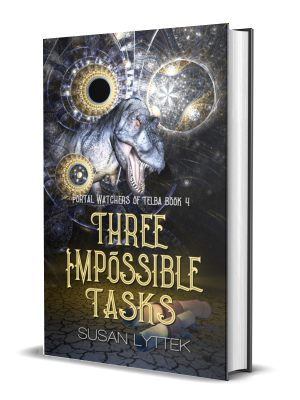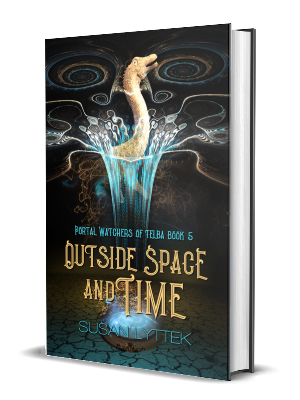
Sign up to receive Susan's latest post & your free Benefits for the Home School Parent E-book
S. A. J. Lyttek, a multiple award-winning writer, always loved writing, but didn’t arrive at the profession in the typical manner. After college and graduate school, she plunged into government consulting. In this environment, she discovered a knack for writing tests, interviews and other measurements. That soon became the focus of her career—reigniting her love for the written word. Thus captivated, she spent evenings freelancing “fun” writing including short stories, poems, articles and cards. When her eldest was a toddler, she quit full-time work to stay home and write. Eager to spend more time with her children, homeschooling intrigued her. From preschool through high school, she homeschooled both sons while continuing to freelance. While an integral part of the homeschooling community, she developed and taught writing classes to a generation of homeschoolers. Married to her childhood sweetheart, Gary, Mrs. Lyttek loves to share her commitment to learners of all ages and her fascination with the written word.
Over twenty years ago, our world pivoted.
In some ways, that’s very hard to believe. In others, the comparative age of our sons compared to that moment, it’s easy to see the change.
But it was such a shocking event that it’s easy to remember. It’s easy to remember, even if we would rather forget.
I know I would rather forget.
That time, those years right around 9/11, life was fragile. It always has been in truth, but it was during those years that the “here today, gone tomorrow” idea hit home.
First, we had the whole scare about the year 2000. Then the next year, 9/11 happened. Then the DC Sniper in 2003. And in between those events, there was always something publicized that incited fear. Since I had young children, I didn’t need anything else to make me anxious. It was about then I gave up watching or listening to the news. If I happened to catch a headline while online, that was one thing. But I wasn’t going to seek the bad news.
Here is what I remember. (A few of the details may be slightly off of what reality was because emotions have a way of distorting memories.) The morning of 9/11 was a Tuesday. Tuesdays, at that time in my life, were ladies Bible study. I packed up my guys and headed to church. My latest Celtic CD was in the player. I had no clue that the nation was already grieving.
The parking lot was a bit quiet. Not empty, but not as many cars. Also, there weren’t any kids playing in the field which seemed odd. Still, I took Erik and Karl up to the main building and checked them in. The woman on nursery duty made some comment about none of us being there long today and shook her head sadly.
It made no sense.
I walked down to the other building where we had most of the classes. Several women and the pastor were sitting around our table like usual. What wasn’t usual was that none of them had their Bibles open.
“It’s terrible, isn’t it?” one friend asked me. “Can you believe it?”
She saw the blank look on my face.
“Terrorists attacked the World Trade Center.”
One woman was on her phone with her husband whose job kept him informed about such details. He happened to work at the Pentagon.
The call dropped and she tried to ring him back unsuccessfully. Another lady in the group had a portable radio.
I was in that room when the plane hit the Pentagon.
In this area, we know (and knew) a lot of friends and family who work in that five-sided structure. The immediate tension was palpable.
“Let’s pray,” the pastor said, “and then disperse. This is not a normal day.”
In a fog, I regathered my two sons and headed back to the house. I tried to call Gary at his DC office, but all the lines were busy and circuits jammed.
The rest of the day was spent keeping the boys diverted, answering phone calls that came in from friends and family elsewhere in the country, and trying to reach Gary. He got home early for a work day, about 3:30, but late considering he’d been making his way home for hours.
Over the weeks that followed, we learned of countless miracles that had protected many. Yes, many had died, even sacrificing their lives on behalf of their fellow man. But others, including our friends, were preserved.
Several people we knew at the Pentagon had offices in the area that was hit. However, and this is a big however, their section was being remodeled. None of them were anywhere close to the destruction.
It is not a time I want to remember. Even focusing on the miracles, it was so sad on so many levels. Twenty or so years from now, it will still be a time where the world pivoted, similar to the recent pandemic.
The children of Israel did not want to remember the wilderness years. So many died. So many turned from God just when he showed his power with their deliverance.
And yet, God told them to remember. He told them to recite the details over and over and pass them down to their children. It is in the hard times, in the difficulty, that humans show their true colors and whether they strive for good or for evil.
So, remember. And tell those not born yet in such a way that it is real to them and they remember. Because when we remember, we are better for it.
It’s October, so we’re back in memories and remembering.
The memory that predominates this week is actually September by date. But as the last day of September, it was only a couple of days ago. September 30th was when my mom passed away. The weekend she died was emotionally difficult and stressful. Hospice, unlike the good reputation I’ve heard from many, came for all of fifteen minutes and told me how to administer medicines. I have absolutely no knack for nursing, so I felt inept and unable to do the best for her. Most of the time, she did sleep. In her sleep, she twisted and pushed like a butterfly trying to leave its cocoon. When awake, she cracked jokes about our grim faces whenever she felt good. Whenever she hurt, she cried out that she just wanted to be with Jesus.
Not long after listening to the church service on Sunday, her prayer was answered.
Her loss reminds me, too, of other people who have died and left my life that way. It also reminds me of people who have chosen to leave, whether friends or family. Some have left by attrition and lack of contact. Others have left forcefully through divorce or divergent life paths. I don’t like it. I’m one of those people who’d prefer to keep all the people in my life throughout my life. If you look at my Christmas card list, that fact is evident.
Thinking like this, I see in my head a scene from my favorite movie version of Emma. Knightley has just left for London. Mr. Woodhouse says, (I’m relying on my memory here, so it might be slightly off) “I don’t like it when people leave, Emma. I suppose they must go at times, but I don’t like it.” Emma touches his shoulder, replying, “Nor I, Papa.”
In a way, we’re all tapestries; we’re woven together through the people and circumstances that make up our lives. When a person leaves, it’s like a thread is pulled, altering the warp and the design. Sometimes it even leaves a hole that must be stitched up over time.
But death and separation aren’t the only difficult memories God calls us to grow from. God told Israel to remember their years of bondage before he tells them to remember the deliverance. The deliverance only has its impact when remembered in light of what went before it.
Deuteronomy 5:15a And remember that you were a slave in the land of Egypt, and the Lord your God brought you out from there by a mighty hand and by an outstretched arm.
God also told them to remember their failures in the wilderness. We too need to remember those times where we didn’t do what we knew God was calling us to.
I spent a lot of time not writing.
By that, I’m not referring to the lazy days or achy days or playing hooky days. I’m talking more about the years of not doing what I felt God calling me to do simply because I wasn’t like the other writers I knew. I can’t plan or outline in advance to save my life. (In school, for those who remembered me talking about it, I always wrote the draft of the paper first, then the outline.) Pinterest idea boards are useless to the way I’m wired. I can’t even start at the beginning and keep writing until the end without dozens of time skips and project jumps.
I took multiple classes in novel writing from famous and/or profitable authors and felt like I failed them all.
Acting in that feeling rather than obeying God’s calling, I stopped work on my novels. Short stories, articles, greeting cards, and anything else of 5000 words or less received my effort and attention. My heart was aching for the longer and more intricate stories, but I felt someone else would have to write them. God, I thought, made a mistake calling an easily distracted woman with the inability to focus for more than ten minutes to write books.
God called me back to his purpose for me multiple times before I listened. The feeling of being a misfit in the writing world clanged so loudly in my soul it often drowned out his still, small voice.
Now, that feeling still surfaces from time to time. I feel so weak as a writer when I compare myself. But then, I remember that pain of disobedience. But then, I remember the other side of the wilderness each time a book surfaced with my name on it.
Difficult memories help us grow. We need to remember our losses and our wildernesses. We need to remember the times we were hurt so that we don’t hurt others. We need to remember our grief so we can console others. We need to remember our weaknesses so that we can lean upon and into the strength of our Author.
Worry is probably the sin I confess most often.
I worry about how to prioritize my day. I worry about the people I love and their concerns or the potential difficulties befalling them. Jokingly, I often say to my sons, “My magic wand doesn’t appear to be working or I’d wipe that (whatever the issue is) out of your life.”
Do I pray about these things? Yes. But then I take them back under the umbrella of worry much more often than I should. Especially since God says we should never take them back!
When it comes to dreaming the way God wants us to, worry holds me back.
For your heavenly Father knows that you need all these things. But seek first the kingdom of God and His righteousness, and all these things shall be added to you. Therefore do not worry about tomorrow, for tomorrow will worry about its own things. Sufficient for the day is its own trouble. (Matthew 6:32b-34, NKJV)
To keep my eyes on the dream and off of the worries, I need to seek first the kingdom of God. I need to keep my eyes on heaven to live as God would have me live on earth.
And how does he tell me (us) to live?
If you look in the first chapters of Genesis, the key theme is abundance. Then God blessed them, and God said to them, “Be fruitful and multiply; fill the earth and subdue it; have dominion over the fish of the sea, over the birds of the air, and over every living thing that moves on the earth.” (Genesis 1:28 NKJV) After the flood, God confirms that theme with Noah. “And as for you, be fruitful and multiply; Bring forth abundantly in the earth and multiply in it.” (Genesis 9:7, NKJV)
As Jesus creates the new covenant, the book of John picks up that theme. I have come that they may have life, and that they may have it more abundantly. (John 10:10b, NKJV)
When I think about this kind of life, it’s the kind of life that history books often call impossible. People who live this abundant life as God intends accomplish more than humanly possible. I think of people like George Mueller who cared for thousands of orphans, dependent solely on God’s provisions. I read somewhere that if Mr. Mueller had kept the monies that came his way, he would have been unbelievably wealthy by worldly standards. Instead, he let the pounds pass through his fingers and onto those who had needs. And in doing so, he saw the impossible happen multiple times.
I’m sure you have your own examples that you remember.
The point is that people who have lived as Jesus asked them to have seen God’s abundance. They have seen the dream of the kingdom of God grow and develop through their ministrations. They have become part of the original work that humankind was created for and called unto.
It’s like what C.S. Lewis said. “Aim at Heaven and you will get earth ‘thrown in’: aim at earth and you will get neither.”
Abundant living, abundant dreaming means you align your thoughts, dreams, and purposes with those of God. When you do that, he pours back into you and through you. In the book of Malachi, God mentions the response to the physical tithe, as uncontainable abundance. Bring the whole tithe into the storehouse, that there may be food in my house. Test me in this,” says the Lord Almighty, “and see if I will not throw open the floodgates of heaven and pour out so much blessing that there will not be room enough to store it. (Malachi 3: 10, NIV) In a similar tone, Paul tells us in Romans to become living sacrifices. Why? Because God will use us to pour mercy on the world and knit the body of Christ together.
God’s abundance has no earthly limits. If we look to him to guide our dreams, if we look to heaven and his kingdom as our motivation, our dreams will grow. No longer will we be content with merely impacting the here and now; though, the change in us will change the present, too.
What abundant dream has God been whispering to your soul? What idea thrills you every time it surfaces (and before the enemy shoots it down as ridiculous)?
Accept it. Walk into it. And trust that God is big enough to make it real.










Today, October 16th as I write this, in 1936, my mom was born. It has been seven years since I could give her a present to honor the day.
October 14th in 1983 was Gary and my church wedding. That means, memory-wise, this is a bittersweet week. Such weeks, such times, drag up all sorts of memories and mental snapshots.
I like the mental snapshots, as flawed as they can be. However, I have a love-hate relationship with the physical pictures, photos, and memorabilia. Unorganized, it’s just boxes of clutter. But sorted, scanned, and preserved, the glimpses into the past have meaning. They are images I can link to the memories.
Thankfully, I’ve transferred a good chunk of my physical photos to digital… reducing the clutter in the office. Someday, I will have to purge the rest of them. As it is, I have thousands of photos in both the physical and in my computer directories. It’s easy to browse through decades of memories, due, in large part, to the efforts of my mother.
I have come to one astonishing conclusion.
My mom loved pictures.
Much more than I do, truth be told. She blessed me with multiple copies of the same pic, just in case one got damaged or if I wanted to pass a copy onto someone else. But some are unique gems, like the one attached to this post. (And yes, I did post this pic with a similar blog post a few years ago.) I remember riding a camel, but not an elephant. Yet, there Deb and I are swaying on the back of the huge creature.
Of course, it is a totally Susan move. I tend to be impulsive with God’s creatures. It is why I have pictures of me holding an alligator and a tarantula. It’s why I snorkeled with stingrays, babysat a boa constrictor, spent hours playing with daddy longlegs in our basement, and cradled hissing cockroaches at the bug exhibit. If someone said it was perfectly okay, and it was creature related, I did it.
But back to my main point.
My mom made certain from days way before internet that life was documented in pictures. I always knew to send her a family photo at Christmas. If I didn’t, I would have been in trouble. Big trouble. In a way, the annual collage of pictures I assemble and put on the wall is in her honor. There must be a visual tribute to life that changes as we do.
But she loved to take pictures herself and valued what a photo could capture. I remember her taking a photography class and going on road trips to try and find just the right image to use for an assignment.
One of her favorites from that exercise, a closeup of icicles melting, was framed and hung on the wall for many years.
Going through what she sent me I found pictures that I was sure I didn’t have, like those of my graduation from Officer Training School back in 1986. I had the class picture and a couple of snapshots, but she had documented the entire event.
The fact that she compiled events in my life without my realizing it is precious.
But because she valued pictures so highly, she actually took and saved more than I can possibly use. One of my long-term goals is to scan them all. I will keep a couple of the scrapbooks she took the time to assemble, but the loose pictures belong in files I can access to use for my Instagram or blog posts like this one. Or just to savor in the middle of a busy day.
Over the years, the piles of pictures grew. The pile grew, in part, because I wasn’t willing or able to deal with the emotions. It was easier to have masses of pictures hidden in the office closet.
But now, those piles feel like a weight on my soul. I keep processing them in bits and pieces, trying to honor the work my mother invested.
I will end up tossing a lot and that’s okay. I do not need fifteen copies of my wedding program or twenty pictures of Karl showing his missing teeth.
However, hidden gems, I’m convinced will continue to surface.
And each of those feels like a hug from my mom.
Happy birthday, Mom.